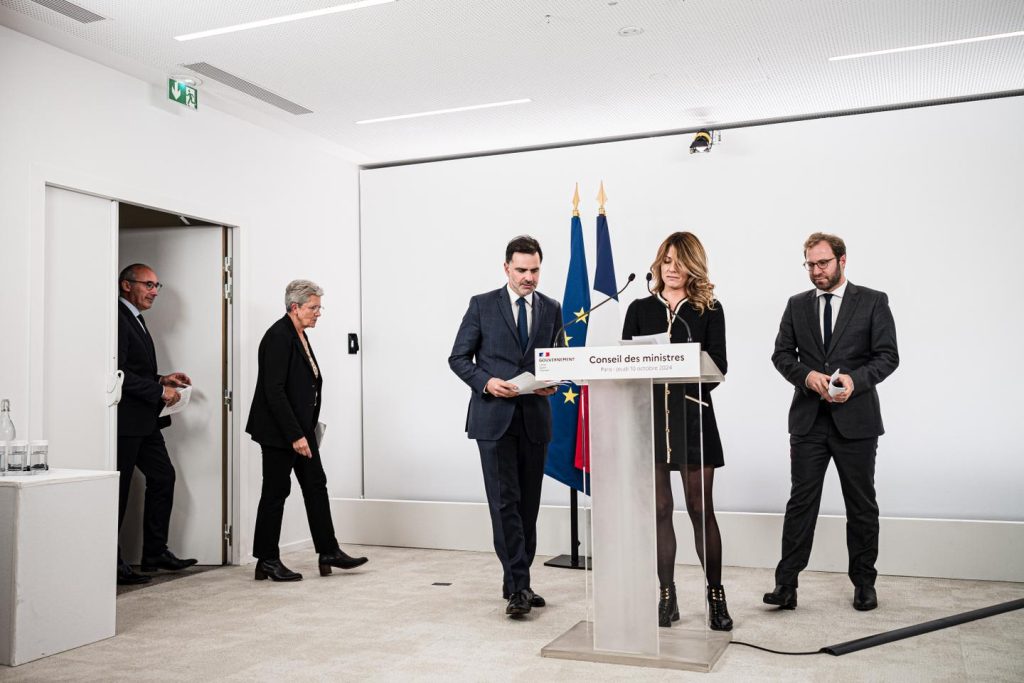The almost unanimous hostility towards the budget proposal presented on October 10th by Michel Barnier highlights the state of public finances and the political situation in the country. The Prime Minister has proposed a budget adjustment of 60 billion euros for 2025, with one third of tax increases and two thirds of savings, with a distribution that lacks consensus. The High Council of Public Finances has a different interpretation, suggesting that the fiscal effort should be raised to 70%. This has further divided the debate as everyone faces the seriousness of the budget situation. The responsibility of the outgoing majority is glaring, as President Emmanuel Macron’s refusal to see the impending catastrophe due to his “neither-nor” approach of no tax increases or spending cuts has led the country into a deadlock.
Opposition parties are quick to criticize the situation yet have not shown a strong alternative to moderate a “whatever it takes” policy that has become dangerous given the debt reaching 110% of national wealth. Michel Barnier is accused by some of imposing an “austerity policy,” but the budget proposal actually includes a 2.1% increase in public spending compared to 1.8% inflation. The strategy aims to slow down an unsustainable increase while activating the fiscal lever that the left demands, which is the quickest way to generate revenue. However, some argue that the proposals do not address the root problems, only applying a budget cutting technique. Given the circumstances, Barnier had to resort to expedients as he had to formulate a budget urgently without time to prepare people for the necessary efforts and without democratic legitimacy or a majority to support him.
In this context, resorting to a tax increase was difficult to avoid, especially because the money spent in the crisis preserved jobs and purchasing power for both businesses and households regardless of their financial situation. It is logical for the more affluent individuals who benefited from the support to contribute to its repayment. The debate on the balance between revenue and expenditure can continue indefinitely, but it is crucial for everyone to realize that the uncontrollable deficit and debt are directly linked to the inability to properly finance the social model that everyone seeks to preserve. Unfortunately, no one has the legitimacy to lead the debate on this issue, leaving Michel Barnier with the thankless and essential task of restoring some budgetary credibility vis-a-vis European partners and creditors.
The oppositions have criticized the budget proposal for not tackling the issues at the core and merely applying a superficial approach to budget cuts. Barnier has been put in a challenging position with the urgent need to address the budget deficit and debt without the necessary democratic legitimacy or support. The situation has forced him to resort to tax increases as a means to manage the unsustainable increase in spending, despite criticism of imposing austerity measures. It is essential for all parties to understand the gravity of the financial situation and work towards restoring credibility in the budget to regain the trust of European partners and creditors.
The criticisms towards Michel Barnier’s budget proposal reflect the broader political and economic challenges facing the country, with public finances in a precarious state due to a rapid increase in the deficit and debt. The need for urgent action to address the budgetary crisis has led to contentious debates over tax increases and spending cuts. While the opposition parties and the public express concerns about the impact of the proposed measures, it is crucial to acknowledge the complex nature of the situation and the necessity for all stakeholders to work together to find sustainable solutions. This moment calls for leadership, cooperation, and a shared commitment to addressing the financial challenges facing the country.


